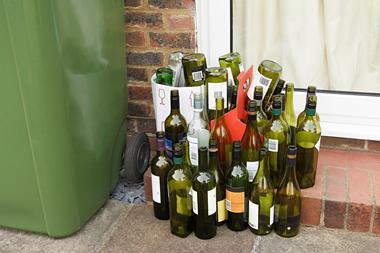hen heads of state, world leaders, academics, NGOs and indigenous groups gather at the Rio+20 summit next month, the concept of natural capital accounting is likely to be high on the agenda.
An alternative to the traditional production-focused GDP, natural capital accounting values natural resources as accurately as possible and includes in national accounts the costs and benefits of conserving or destroying them. This system acknowledges that while these natural assets can be a great source of benefit, when they are reduced, damaged or lost, these benefits are adversely affected.
Grocery retailers and food and drink manufacturers have a vested interest in this debate, being highly dependent on natural resources for their business. The grocery supply chain is also only too aware of the business challenges that arise when natural resources are depleted. Degraded soils result in decreased crop yields while plummeting catches are inevitable when fish stocks are overexploited.
Four basic categories of natural capital are generally recognised: air, water, land (including soil, space and landscape) and habitats (including ecosystems, flora and fauna). With these natural resources being affected by a range of pressures, such as climate change and biodiversity loss, proponents of natural capital accounting argue that preserving these assets must become an accountable and implemented element of policy.
There are signs that this more sustainable economic perspective is starting to take hold beyond environmental circles. The Rio+20 conference, from 20 to 22 June, has the potential to rally international resolve in order to address the uptake of natural capital. Events are starting to progress closer to home as well, with the establishment of the Natural Capital Committee, chaired by Oxford professor and economist Dieter Helm, which will advise George Osborne on the state of natural capital in England and which meets for the first time next month.
Genuine change will not just come from governments alone, but must also be driven by businesses - particularly those in the retail supply chain. In the case of packaging, natural resources do not need to be sacrificed in order for retailers to make economically sustainable decisions. Renewable materials, such as wood fibre from responsibly managed forests, offer a sustainable way of benefiting from natural assets while preserving them - and can even contribute to biodiversity protection. For example, in Nordic countries where the vast majority of wood fibre for ACE members’ beverage cartons originates, the annual growth exceeds annual harvest.
By prioritising wood fibre and other natural renewable materials within their supply chains, retailers and manufacturers have the opportunity to lead the march on green accounting. However, as George Osborne awaits the advice of the Natural Capital Committee and the eyes of the world watch events in Rio, this opportunity to lead won’t be around for long.
Sign in to comment on this article
Not logged in before? Register for FREE guest access today.
You will be able to:
- Read more stories
- Receive daily newsletters
- Comment on stories
Advert



















No comments yet